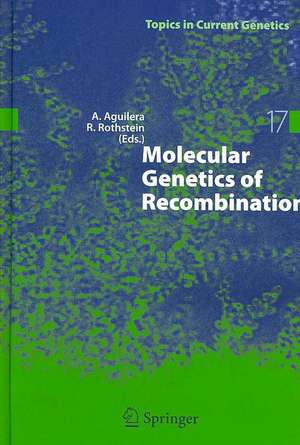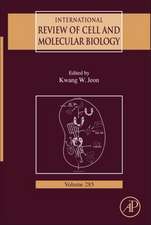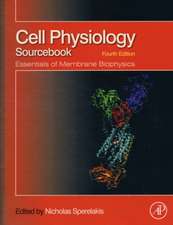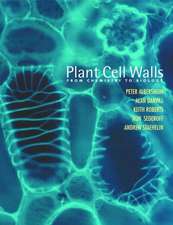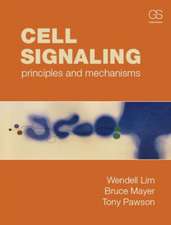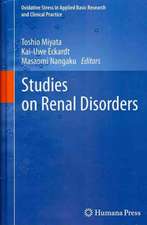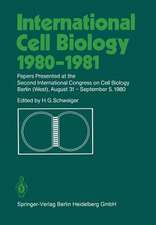Molecular Genetics of Recombination: Topics in Current Genetics, cartea 17
Editat de Andrés Aguilera, Rodney Rothsteinen Limba Engleză Hardback – 3 apr 2007
| Toate formatele și edițiile | Preț | Express |
|---|---|---|
| Paperback (1) | 1827.80 lei 6-8 săpt. | |
| Springer Berlin, Heidelberg – 19 noi 2010 | 1827.80 lei 6-8 săpt. | |
| Hardback (1) | 1837.88 lei 6-8 săpt. | |
| Springer Berlin, Heidelberg – 3 apr 2007 | 1837.88 lei 6-8 săpt. |
Din seria Topics in Current Genetics
- 18%
 Preț: 1227.99 lei
Preț: 1227.99 lei - 18%
 Preț: 947.35 lei
Preț: 947.35 lei - 18%
 Preț: 1220.75 lei
Preț: 1220.75 lei - 18%
 Preț: 1833.16 lei
Preț: 1833.16 lei - 18%
 Preț: 1228.62 lei
Preț: 1228.62 lei - 18%
 Preț: 1833.16 lei
Preț: 1833.16 lei - 18%
 Preț: 1223.55 lei
Preț: 1223.55 lei - 18%
 Preț: 1224.06 lei
Preț: 1224.06 lei - 18%
 Preț: 1551.11 lei
Preț: 1551.11 lei - 18%
 Preț: 1239.37 lei
Preț: 1239.37 lei - 18%
 Preț: 1826.07 lei
Preț: 1826.07 lei - 18%
 Preț: 1226.11 lei
Preț: 1226.11 lei - 18%
 Preț: 1216.78 lei
Preț: 1216.78 lei - 18%
 Preț: 944.51 lei
Preț: 944.51 lei - 18%
 Preț: 949.73 lei
Preț: 949.73 lei - 18%
 Preț: 1223.55 lei
Preț: 1223.55 lei - 18%
 Preț: 1227.52 lei
Preț: 1227.52 lei - 18%
 Preț: 1226.90 lei
Preț: 1226.90 lei - 18%
 Preț: 1826.85 lei
Preț: 1826.85 lei - 18%
 Preț: 2100.25 lei
Preț: 2100.25 lei - 18%
 Preț: 954.93 lei
Preț: 954.93 lei - 18%
 Preț: 1827.63 lei
Preț: 1827.63 lei - 18%
 Preț: 1228.96 lei
Preț: 1228.96 lei
Preț: 1837.88 lei
Preț vechi: 2241.32 lei
-18% Nou
Puncte Express: 2757
Preț estimativ în valută:
351.73€ • 365.85$ • 290.37£
351.73€ • 365.85$ • 290.37£
Carte tipărită la comandă
Livrare economică 15-29 aprilie
Preluare comenzi: 021 569.72.76
Specificații
ISBN-13: 9783540710202
ISBN-10: 3540710205
Pagini: 545
Ilustrații: XXIV, 524 p.
Dimensiuni: 155 x 235 x 37 mm
Greutate: 1.05 kg
Ediția:2007
Editura: Springer Berlin, Heidelberg
Colecția Springer
Seria Topics in Current Genetics
Locul publicării:Berlin, Heidelberg, Germany
ISBN-10: 3540710205
Pagini: 545
Ilustrații: XXIV, 524 p.
Dimensiuni: 155 x 235 x 37 mm
Greutate: 1.05 kg
Ediția:2007
Editura: Springer Berlin, Heidelberg
Colecția Springer
Seria Topics in Current Genetics
Locul publicării:Berlin, Heidelberg, Germany
Public țintă
ResearchCuprins
Genetics of Recombination in the Model Bacterium Escherichia Coli.- Homologous Recombination in Low dC + dG Gram-Positive Bacteria.- The Bacterial RecA Protein: Structure, Function, and Regulation.- Biochemistry of Eukaryotic Homologous Recombination.- DNA helicases in recombination.- Holliday Junction Resolution.- Replication forks and replication checkpoints in repair.- Sister chromatid recombination.- Mating-Type Switching in S. Pombe.- Multiple Mechanisms of Repairing Meganuclease-Induced Double-Strand DNA Breaks in Budding Yeast.- The Cell Biology of Mitotic Recombination in Saccharomyces Cerevisiae.- The cell biology of homologous recombination.- BRCA2: safeguarding the genome through homologous recombination.- Meiotic recombination.- Site-specific recombination.- V(D)J Recombination: Mechanism and Consequences.- Nonhomologous End-Joining: Mechanisms, Conservation and Relationship to Illegitimate Recombination.- Analytical methods from the perspective of method standardization.
Textul de pe ultima copertă
Genetic recombination is an important process involved in shaping the genetic make up of progeny. Increasingly, it has become evident that recombination is a DNA repair pathway crucial during DNA replication in vegetatively growing cells. It plays a critical role in preserving the integrity of the genome by mediating the repair of DNA damage, which can occur during normal cellular metabolism as a result of oxidative stress, transcription, replication fork stalling or breakdown, or after the exposure to DNA damaging agents. Until recently, much of our knowledge on the mechanisms of genetic recombination has come from studies of prokaryotic and simple eukaryotic fungal systems. However, these studies have now been significantly extended to mammals, such that a comparative picture of the general factors and mechanisms of genetic recombination is beginning to emerge. Detailed genetic and biochemical studies have led to the isolation and characterization of many of the recombination-repair proteins in E. coli and S. cerevisiae, which in turn has led to the identification of homologues in human cells. The link between recombination defects and recombination proteins in a number of tumors as well as in human hereditary syndromes makes genetic recombination a cellular process of key importance not only in basic biology but also in biomedical studies.
Caracteristici
Covers one of the most important topics in modern biology: recombination Summarize all existing views on the topic and to put them into context In-depth and up-to-date analysis of the chapter topics, written by international experts Includes supplementary material: sn.pub/extras
